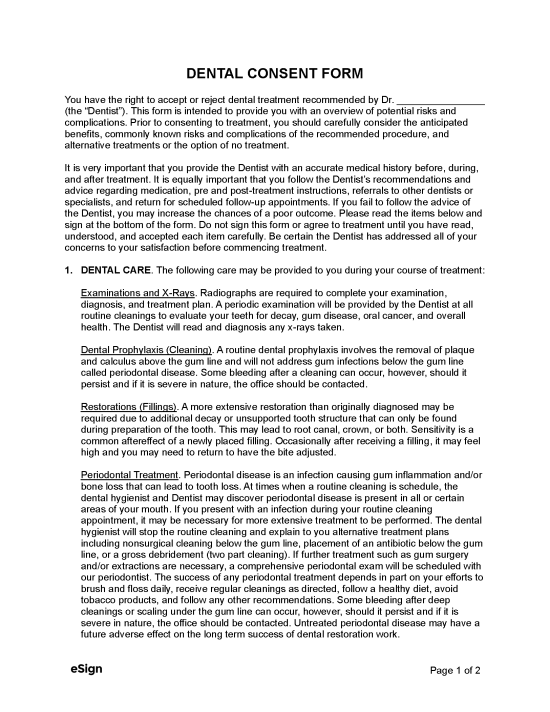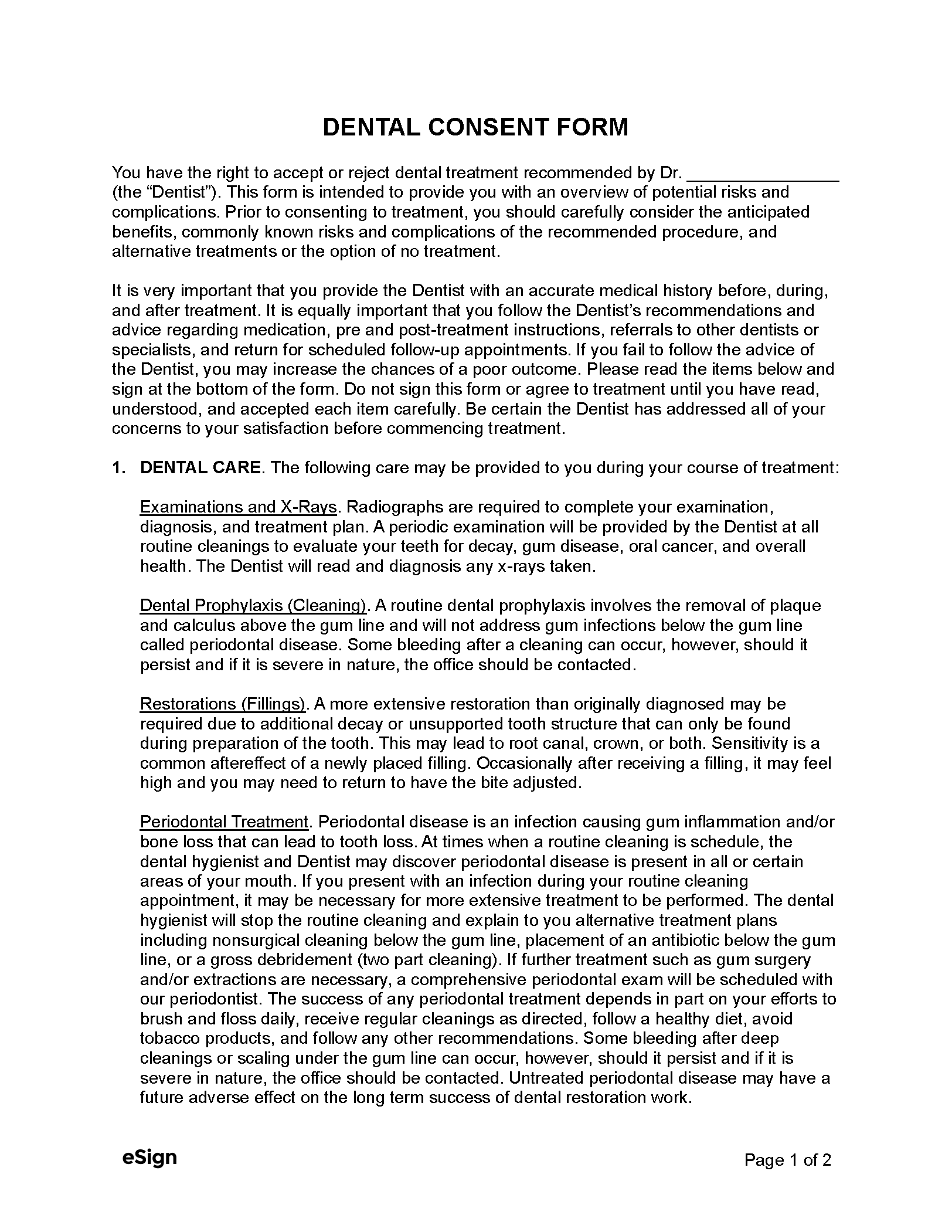Treatment-Specific Consent Forms
Informed Consent Requirements
Conditions for obtaining informed consent vary from state to state. Dental offices should be fully aware of their state’s dental practice act.
General Consent for Dental Treatment
Patients are often asked to sign a general consent form when they first register at a dental office. By doing so, they give the dentist permission to carry out general dental procedures, which include:
- Examinations and x-rays.
- Administration of local anesthesia.
- Dental prophylaxis (removing plaque and calculus above the gum line).
- Fillings, crowns, bridges, and veneers.
For any treatment not covered by the initial consent form, dentists will need to secure informed consent for that specific dental procedure.[1] This process involves a thorough discussion with the patient about the proposed treatment, followed by the signing of a treatment-specific consent form.

